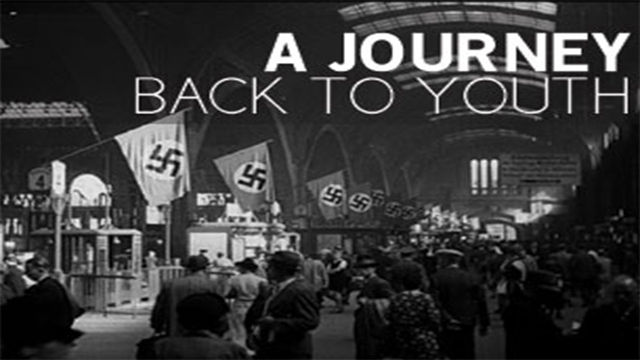A Journey Back to Youth
Written out of the history books, this is the controversial story of the Germans sent to the Russian gulags.
 They're the war victims the world chose to ignore. Even today, the suffering of Germans deported to Russia during the Russian occupation of Germany goes unrecognised. As the world commemorates the defeat of Nazism, we offer you a compelling documentary on the crimes of Stalin's Red Army. Written out of the history books, this is the controversial story of the Germans sent to the Russian gulags.
They're the war victims the world chose to ignore. Even today, the suffering of Germans deported to Russia during the Russian occupation of Germany goes unrecognised. As the world commemorates the defeat of Nazism, we offer you a compelling documentary on the crimes of Stalin's Red Army. Written out of the history books, this is the controversial story of the Germans sent to the Russian gulags.
In February 1945 at the Yalta Conference, Churchill, Roosevelt and Stalin agreed a deal that would unsettle and destroy the lives of thousands of Germans. Secret Order 7161 was the result. It allowed the Red Army to "mobilise and intern for assignment to work in the USSR all able-bodied Germans". In this manner the USSR's war ravaged economy was to be revitalised.
With that decree the fate of four women - Charlotte, Traute, Delheid and Dora - was sealed. Along with thousands of others, they were forced to march to work camps and endure a regime of hard labour. On the way they were denied food or water. "We weren't shot or killed, but we were more likely to die than to survive," Charlotte recalls. "The Russians didn't care about what happened to us. They told us Germany was responsible for everything in the war and had to redeem its guilt."
They were ordinary citizens whose semblance of normality was shattered by the arrival of the invading allied forces in their front rooms. They were only children at the time, but that didn't matter. An intensely personal portrait of abuse, humiliation and exploitation is falteringly remembered in the search for some sort of catharsis. Lingering grievances are perhaps finally shelved, friends and relatives laid to rest, and a universal truth vividly exposed - that suffering knows no nationality.
Rape, humiliation, and torture were commonplace in the camp. "Scarcely a single girl avoided being raped," says Charlotte. The Russian soldiers adopted a cavalier attitude, seeing it as a "harmless form of amusement." Even more gruesome was the punishment reserved for those who stepped out of line: girls were "stripped and laid on the floor, then beaten with a leather whip."
Charlotte's sister, Gretchen, was one of those who died being punished. When Charlotte climbed through the window of the infirmary to visit her sick sister, Gretchen warned her: "Don't come back again or they will punish me." The next day Gretchen - desperately ill with dysentery - was forced to clean the hut from top to bottom. Later, Charlotte was told by the guards: "If you want to see your sister, go to the morgue." To this day her eyes well with tears: "Why did we all have to pay for what Hitler began?"
The mental and physical torture the detainees endured only ended when they were released after five years. But to their despair, they were not allowed to return to Germany. "We had nowhere to go."
But the suffering of the women did not end there. The most cruel irony is the blame these older Germans continue to endure from the young. Charlotte's daughters, Korina and Koni, hold her mother's generation accountable for the Second World War.
Standing in Russia by the side of a grave, Charlotte cuts a lonely figure. Caught in the fallout from the world's greatest war, these children of a defeated nation have learnt a bitter wisdom: "Women suffer more from war than men, and children even more."
FULL SYNOPSIS
